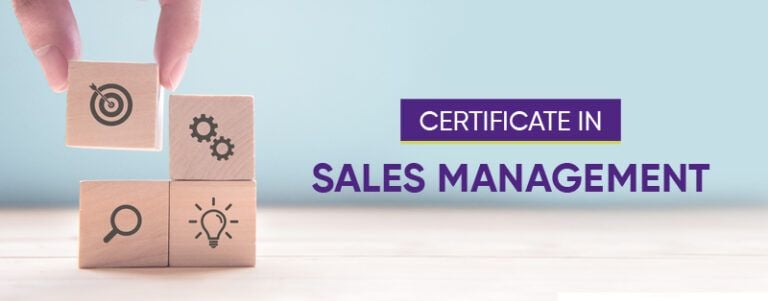What is CRM and How Does it Work? All You Need to Know

Forecasts indicate an astounding ascent in the Customer Relationship Management (CRM) software domain, projecting a revenue surge to $88.19 billion by 2024. This upward trajectory is set to continue with an expected annual growth rate of 10.59%, reaching $131.90 billion at the end of 2028. The statistics underscore the escalating reliance and importance of CRM technologies within modern business landscapes at a profound level. Curious to know what is CRM? Stay with us as we discuss the multiple facets of CRM, including its operational mechanisms and best CRM practices.
What Exactly is CRM and How Does it Work?
1. Definition of CRM
 So, what is CRM? Fundamentally, Customer Relationship Management (CRM) embodies a technological framework that manages all relational and interactive dynamics between an organization and its existing and/or potential clientele. Hence, deploying a CRM system—a tool that enhances connectivity with clients and optimizes operational procedures—ultimately boosts profitability margins. When one explores the concept of customer resource management, they encounter a strategic approach that targets the enhancement of current client relations. Additionally, it aims to identify potential new clients and reestablish connections with former ones. To operationalize this strategy, a software mechanism comes into play. It facilitates three critical processes: data aggregation and structuration, thus ensuring that information is organized in an accessible format and administration of all client-related data.
So, what is CRM? Fundamentally, Customer Relationship Management (CRM) embodies a technological framework that manages all relational and interactive dynamics between an organization and its existing and/or potential clientele. Hence, deploying a CRM system—a tool that enhances connectivity with clients and optimizes operational procedures—ultimately boosts profitability margins. When one explores the concept of customer resource management, they encounter a strategic approach that targets the enhancement of current client relations. Additionally, it aims to identify potential new clients and reestablish connections with former ones. To operationalize this strategy, a software mechanism comes into play. It facilitates three critical processes: data aggregation and structuration, thus ensuring that information is organized in an accessible format and administration of all client-related data.
2. How Does CRM Work?
1. Monitoring Customer Interactions
To understand what is CRM, it is essential to know how it works. The capacity to meticulously monitor every interaction between a company and its clientele across multiple engagement points is a central functionality of CRM. For instance, these interactions include contact forms, search engines, emails, telephone calls, and social media channels. Consequently, enterprises achieve a holistic perspective on their customer engagement activities by centralizing this data; they can customize communications more effectively, thereby enhancing customer relations significantly.
2. Task Automation
CRM systems excel in automating repetitive tasks. For instance, this automation spectrum includes dispatching marketing emails at prescheduled intervals and setting reminders for subsequent follow-ups. These actions not only save time but also ensure no customer engagement is overlooked.
3. Analytical and Reporting Capabilities
Frequently, CRM solutions equip themselves with analytical instruments. For instance, they yield insightful revelations not only into customer behaviors but also the effectiveness of marketing campaigns. Consequently, empowered by such insights, businesses refine their strategies more adeptly. This culminates in elevated conversion rates and enhanced customer satisfaction.
4. Integration With Marketing Automation
Amalgamation with marketing automation platforms forms a crucial part of CRM functions. This is because the integration guarantees an uninterrupted exchange of information between sales and marketing divisions, nurturing a cohesive approach to customer management. Businesses, by harnessing the power of what is CRM and marketing automation, position themselves for efficient control over the entire sales process.
5. Customized Customer Experiences
Finally, CRM systems actively enable businesses to tailor unique customer experiences across a diverse range of marketing channels. Personalization is key: it not only engages potential clients but also spurs them into action. Thus, by strategically harnessing customer data—an invaluable resource in a digital-first world— firms can deliver customized messages aligned with each client’s preferences and behaviors.
ALSO READ: Discover Why SEO is Still Vital to Boost Traffic to Your Website
How Can CRM be Integrated Into a Company’s Marketing Strategy?
1. Profile Your Target Audience
 Utilize market research and team insights to develop comprehensive profiles of your ideal customers; concentrate on understanding their needs and behaviors—this is crucial for effective targeting.
Utilize market research and team insights to develop comprehensive profiles of your ideal customers; concentrate on understanding their needs and behaviors—this is crucial for effective targeting.
2. Outline the Customer’s Path
Ensure optimization for a superior experience at every step of the customer’s journey. Moreover, meticulously detail each interaction.
3. Ensure Comprehensive Customer Engagement
A business’s internal procedures require a thorough review and adjustment to ensure the delivery of an impeccable customer experience. Consequently, this process should encompass effective management of all roles.
4. Assess Your Market Standing
Analyze competitors and market trends to evaluate the position of the business within the industry. And discern the unique value proposition.
5. Clarify Your Product or Service Message
Ensure that your team consistently and compellingly communicates a value proposition. Also be sure to refine the messaging around the offerings.
6. Choose Suitable CRM Technology
Choose a CRM solution that aligns optimally with business requirements. Moreover, consider factors such as functionality, cost and integration capabilities.
ALSO READ: The Ultimate Guide to Mastering the Art of Luxury Branding
What are the Benefits of Implementing a CRM System?
1. Unified Customer Data
CRM integration centralizes customer data, making it accessible across departments. Consequently, this unity ensures sales, marketing, and customer service have a consistent customer view.
2. Seamless Communication
Integrating CRM functions allows marketers to break down communication barriers between sales, marketing, and customer service teams. To elaborate, the marketing team leads to sales, enriching the customer profile with valuable sales data. Customer interactions thus become more personalized and effective.
3. Automated Workflows
CRM functions prove beneficial when it comes to automating workflows, alerting the sales team about ready leads, and enabling the marketing department to tailor content based on customer interactions. Thus, automation not only saves time but also ensures that no opportunity for engagement is missed.
4. Improved Customer Service
With CRM in place, customer support teams access a wealth of customer data, including purchase history and preferences. Hence, this access allows for more informed and personalized service, significantly enhancing the customer experience and fostering loyalty.
5. Analytics and Reporting
Finally, CRM integration offers powerful analytics and reporting tools. These tools enable businesses to track the effectiveness of marketing campaigns, sales performance, and customer satisfaction.
ALSO READ: What is Market Segmentation? A Comprehensive Guide
How Does CRM Impact Customer Relationships and Brand Loyalty?
1. Tailoring Experiences for Each Customer
Customer relationship management meticulously documents every consumer interaction. This unique capability empowers companies to tailor experiences specifically to each customer’s needs. This approach thus effectively addresses their desires and challenges. As a result, it intensifies the bond between the brand and its customers.
2. Consolidating Interaction and Purchase Records
A significant aspect of what is CRM is eliminating sisjointed data chaos. It gathers all customer-related information into a single repository, thus providing an all-encompassing view of each customer’s history and interactions. Thus, this strategic consolidation enables more relevant customer communication, ultimately enhancing engagement.
3. Facilitating Precision in Marketing and Offers
CRM meticulously categorizes customers into distinct groups using an array of criteria. By doing so, it paves the way for precise and targeted marketing campaigns. Consequently, with this segmentation in place, communications become highly relevant as they reach out to customers at their most receptive moments.
4. Enhancing Loyalty Initiatives
Lastly, loyalty programs, an aspect of CRM functions, facilitate the creation of meticulously customized rewards strategies, perfectly aligning with customers’ singular interests and purchasing habits. This, in turn, substantially amplifies customer loyalty.
ALSO READ: The Power of Strategic Marketing: A Guide to Unlocking Business Growth
What are Some Best Practices for Using CRM to Drive Business Growth?
1. Profile Your Target Audience
Firstly, utilize market research and team insights to develop comprehensive profiles of ideal customers. Then, concentrate on understanding their needs and behaviors.
2. Outline the Customer’s Journey
Ensure optimization for a superior experience at every step of the customer’s journey; meticulously detail each interaction.
3. Ensure Comprehensive Customer Engagement
Internal procedures require a thorough review and adjustment to ensure the delivery of an impeccable customer experience. And this process should encompass effective management of all roles.
4. Assess Market Standing
Analyze competitors and market trends to evaluate your position within the industry. Moreover, discern the unique value proposition.
5. Clarify Your Product or Service Message
Make certain that your team consistently and compellingly communicates a value proposition. Then, refine the messaging around your offerings.
6. Choose Suitable CRM Software
Choose a suitable CRM software that aligns optimally with your business requirements; consider factors like functionality, cost, and integration capabilities.
7. Define and Track Success Metrics
You should implement SMART (Specific, Measurable, Achievable, Realistic, and Time-bound) goals pertinent to your CRM strategy. Simultaneously, the Key Performance Indicators (KPIs) are monitored to evaluate progress and identify potential areas for enhancement.
8. Stay Agile and Responsive
Maintain the effectiveness of the CRM strategy by remaining open to adapting it in response to new industry trends and technological developments.
ALSO READ: 4 Important Reasons Why Marketing is Significant for Brands in India
In conclusion, the benefits of having a CRM in place are multifarious. Businesses typically garner a substantial return for their investment in sales CRM software. Therefore, if you want to explore what is CRM in detail and are interested in mastering its various strategies and different aspects, consider joining Emeritus’ online marketing courses and enhancing your career prospects.
Write to us at content@emeritus.org





